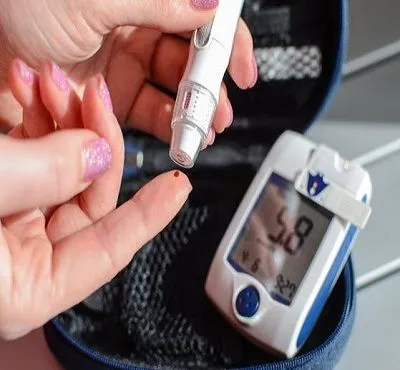It is important to take precautions before a medical condition worsens. Most of the time, diabetic-related medical conditions can be treated with appropriate medications, diet, and a healthy lifestyle. An individual should try to maintain a healthy weight to prevent the risk of complications.
 When you are suffering from medical conditions caused by diabetes, it is important to try and manage it before experiencing irreversible damage. In severe cases, people with diabetic complications should consider applying for disability benefits.
When you are suffering from medical conditions caused by diabetes, it is important to try and manage it before experiencing irreversible damage. In severe cases, people with diabetic complications should consider applying for disability benefits.
According to data reported by American Diabetes Association, over 34 million Americans are diagnosed with increased blood sugar levels every year, and the numbers are increasing. People with high blood sugar should take action to prevent the risk of developing additional symptoms and related conditions. Here, we discuss common complications caused by this ailment.
- Eye Disease – Increased blood sugar levels can damage the blood vessels, leading to vision problems and loss of eyesight. When left untreated too long, it can even lead to permanent loss of vision. Therefore, it is necessary to take precautions to prevent damage before it occurs.
The eyes are an important and sensitive organ. Loss of vision can make it difficult to maintain employment and perform normal activities of daily living. An individual with an eye disease or vision loss may have to depend on others for support. It can be difficult for family members to be in such a situation, as well. You should take precautions even if you only have minor symptoms so that the condition does not worsen.
- Cardiovascular Disease – Individuals diagnosed with diabetes are at a greater risk of dealing with heart complications. Because the body is unable to use insulin efficiently to control blood sugar, blood vessels and the nerves that control your heart become damaged over time. High blood pressure increases the force of blood through the arteries, damaging artery walls. This increases the risk of heart disease.
High blood pressure can lead to damage of the arteries. People with high blood pressure are at a higher risk of suffering from a heart attack or a stroke. Blood pressure should be kept under control to prevent further illness. People should try to maintain a healthy diet and a healthy weight to keep blood pressure under control.
- Nephropathy – Diabetic nephropathy occurs when high blood glucose levels damage how a person’s kidneys function. Diabetes results in high blood sugar levels. Over time, these high glucose levels can damage various areas of the body, including the cardiovascular system and kidneys. Nephropathy is a major cause of long-term kidney disease and end-stage renal disease (ESRD). ESRD occurs when the kidneys no longer function appropriately, leading to potentially fatal kidney failure.
- Kidney disease – The kidneys filter waste from the bloodstream, which are then excreted in the urine. Over time, kidney disease can affect different organs of the body, including, eyes, heart, kidneys, and skin. Disease is one of the significant causes of kidney failure. In serious cases, dialysis or kidney transplant may be the only treatment possible.
Over time, kidney disease can deteriorate the quality of one’s life, making it difficult to maintain gainful employment. Like many diabetic complications, the condition can often be prevented with the help of a healthy diet and medications. If your condition is severe, you should consider applying for benefits. The rules are more liberal for those applying for disability after age 55.
- Foot Disease – Nerve damage in the feet can lead to various complications. In severe cases, leg or foot amputation may be the only option to treat the condition. If there is any redness, bruising, or discoloration, you should contact a medical professional immediately.
Regular monitoring and early intervention can help prevent the condition from worsening.
- Skin Infections – Diabetic patients are at a higher risk of experiencing skin disease and infection. Diabetes can lead to different types of fungal and bacterial infections. In severe cases, skin conditions can become disabling and may affect the ability to live and function normally in everyday life.
Various skin conditions such as dermatitis, bullous disease, photosensitivity disorders, and hidradenitis may be considered a disability. Primary skin conditions are included in the SSA’s Blue Book Listing of Impairments.
- Hearing Impairment – Another complication that may arise due to diabetes is hearing impairment. The American Diabetes Association reports that hearing loss is twice as common in people with diabetes. Of the 88 million adults in the U.S. who have prediabetes, the rate of hearing loss is 30 percent higher. People with difficulty hearing may experience problems managing daily life. Hearing loss may limit employment options and the ability to socialize.
- Alzheimer’s Disease – The condition can also increase the risk of being diagnosed with Alzheimer’s disease and other dementias. Alzheimer’s is the most common form of dementia. Dementia is a generic term for memory loss and other cognitive abilities that interfere with daily life. Alzheimer’s is an irreversible brain disorder with no available cure. Medication and other interventions may help to reduce symptoms.
In addition, dementia can impact the mental state of an individual. People often experience anxiety, depression, and other illnesses.
Contact a New Jersey Disability Lawyer if you are experiencing complications of diabetes that are impacting your ability to maintain gainful employment or perform normal activities of everyday living.

